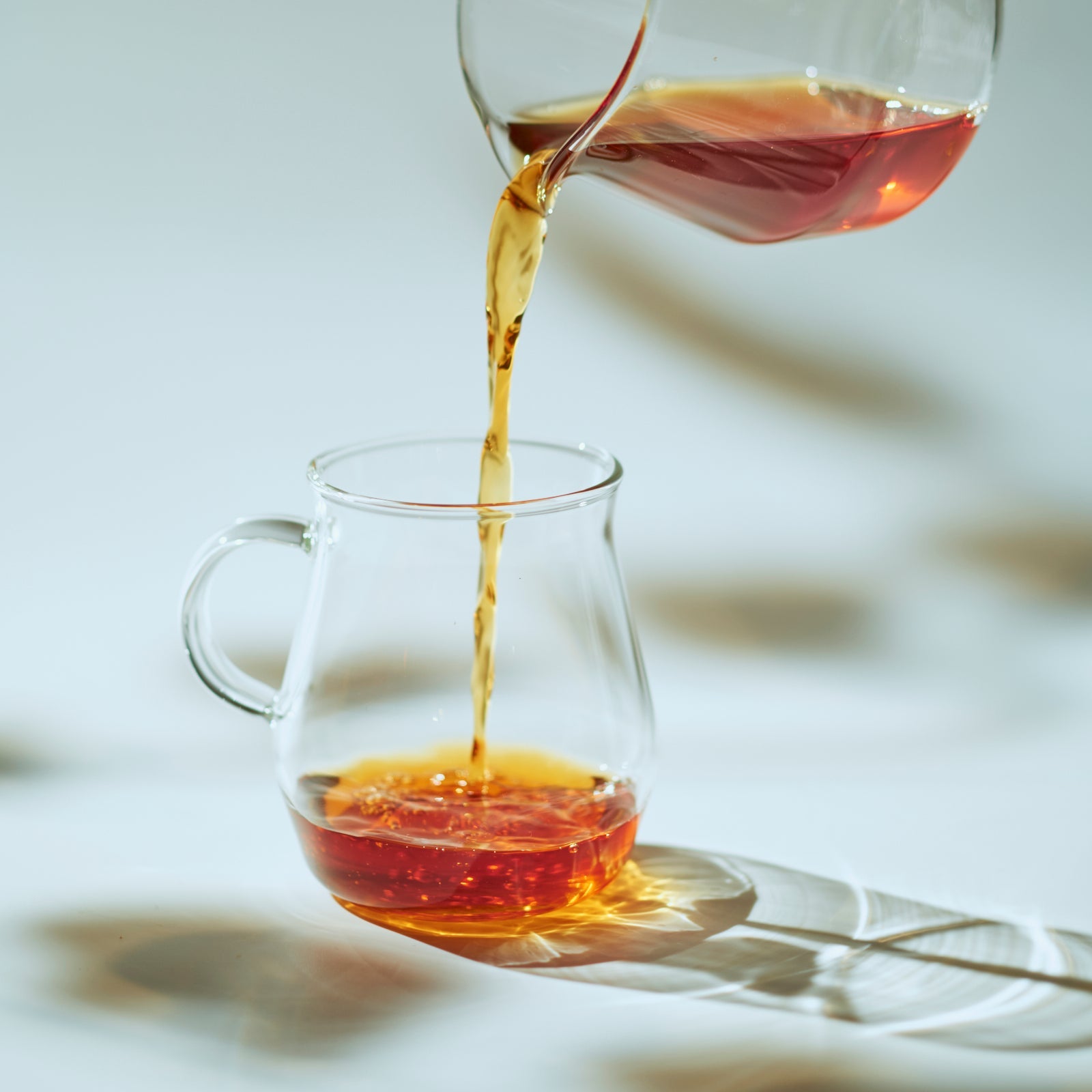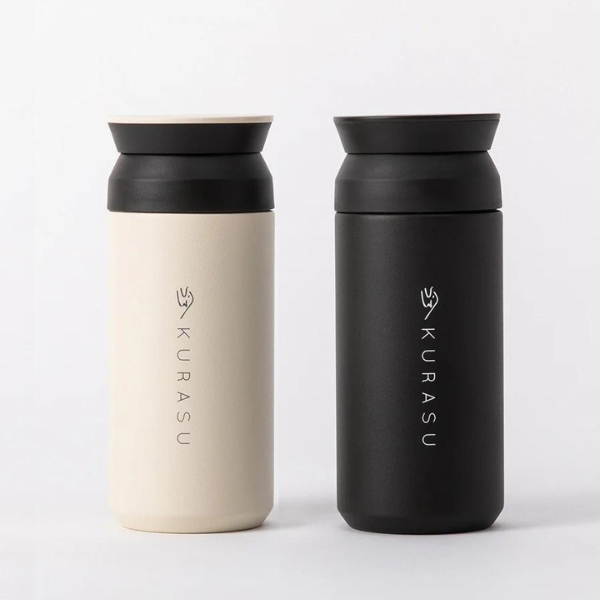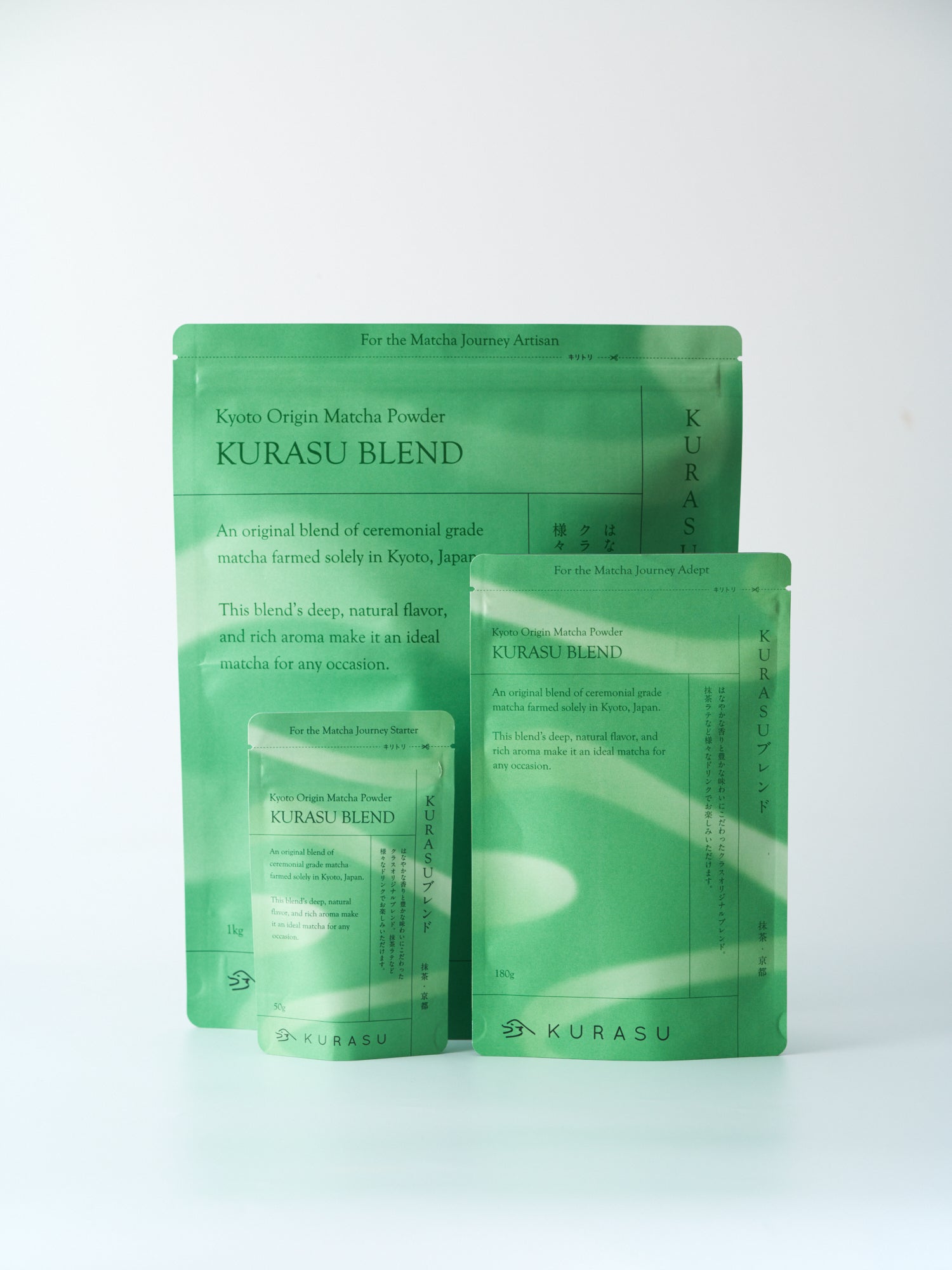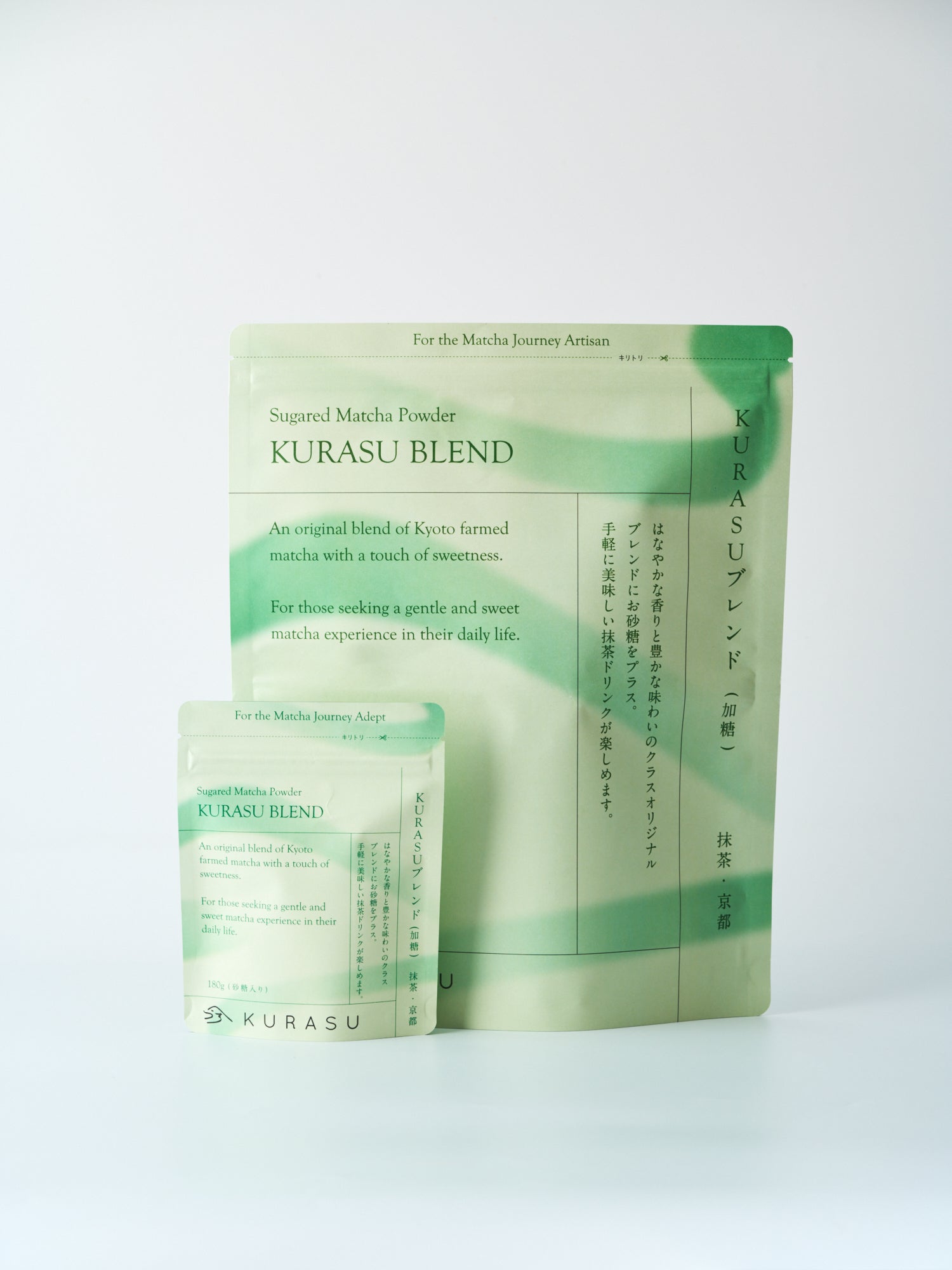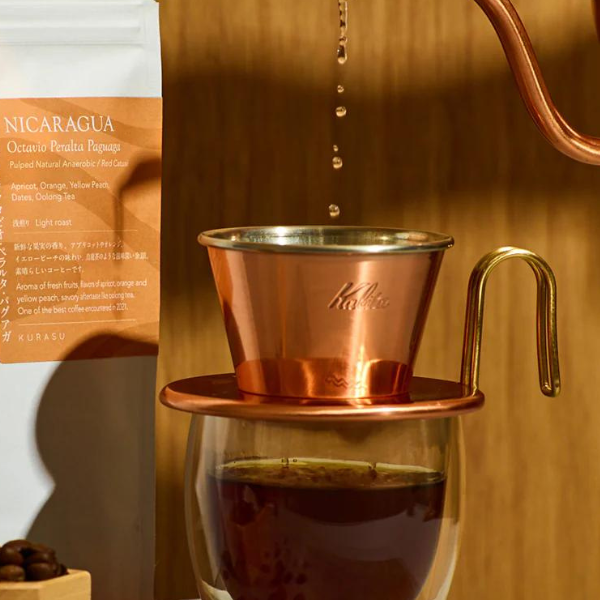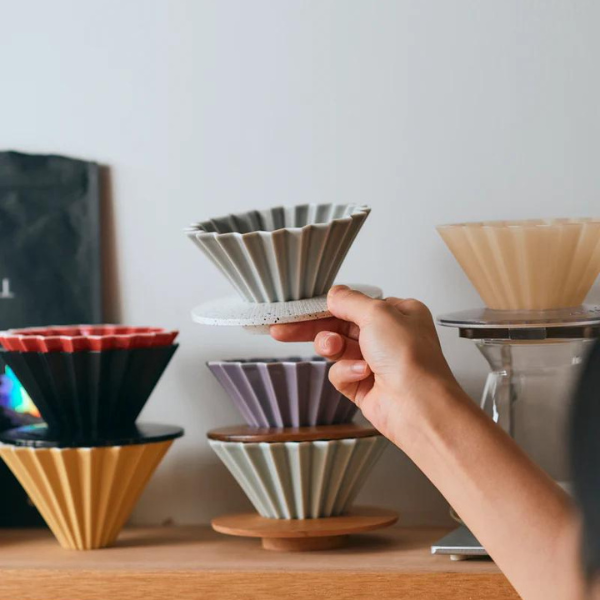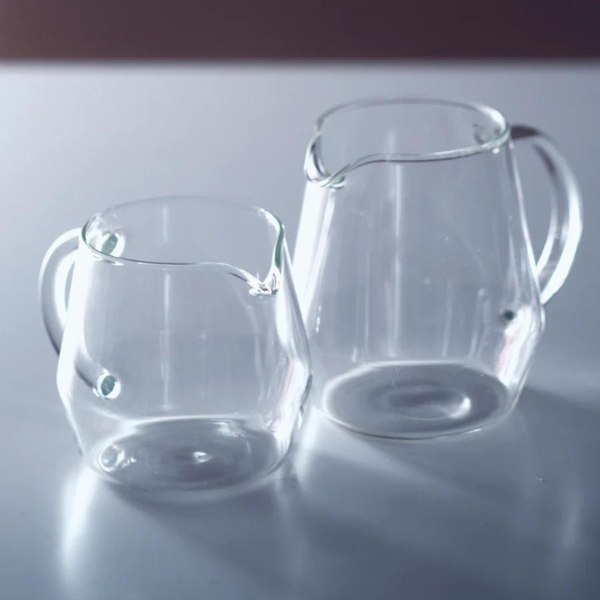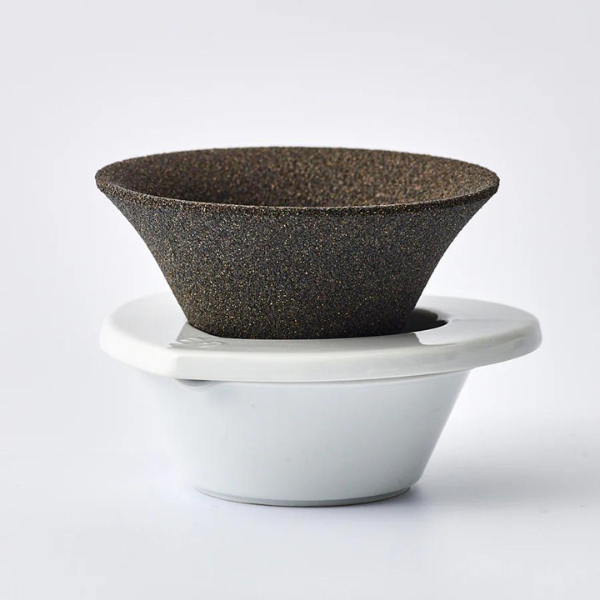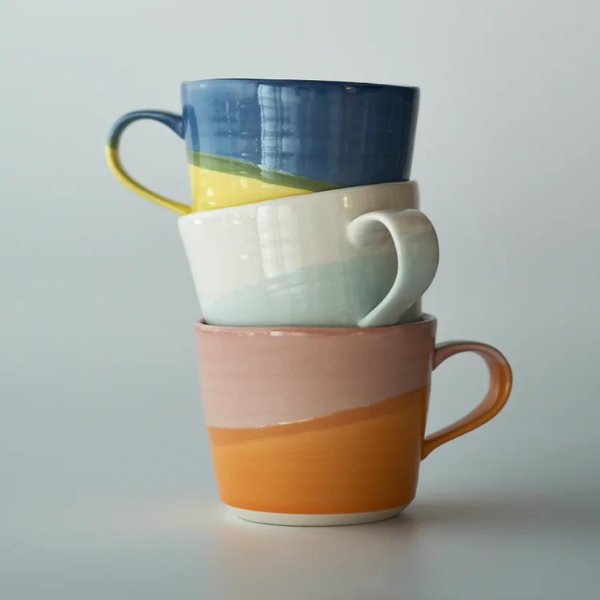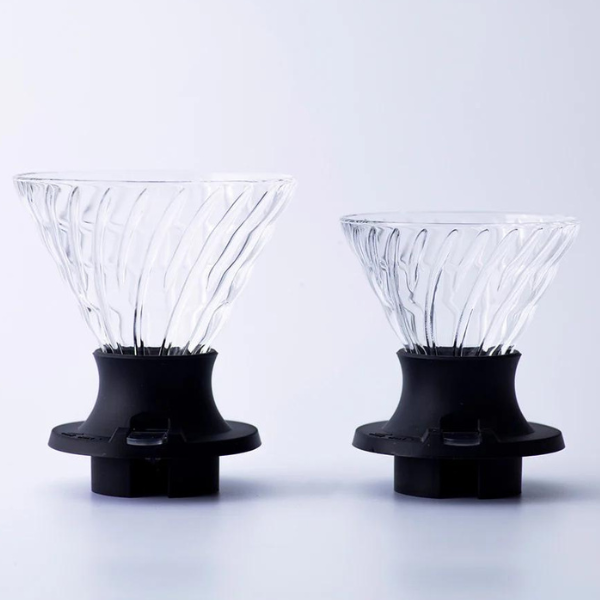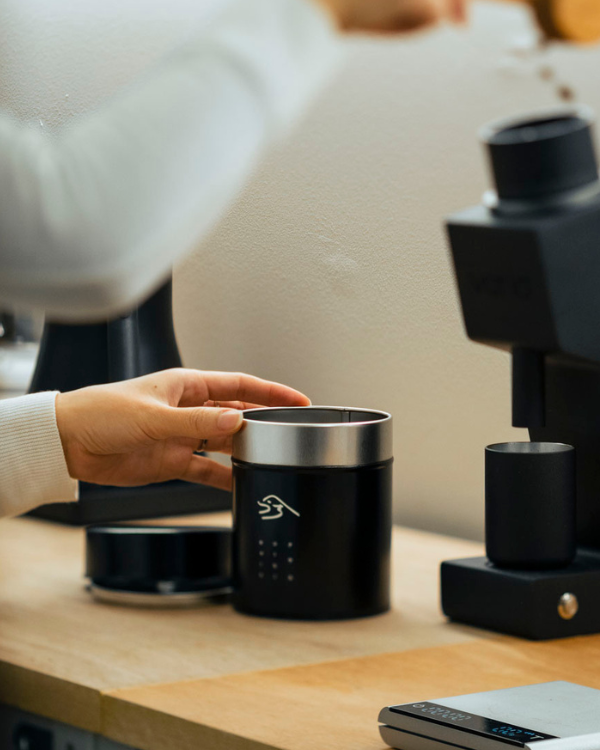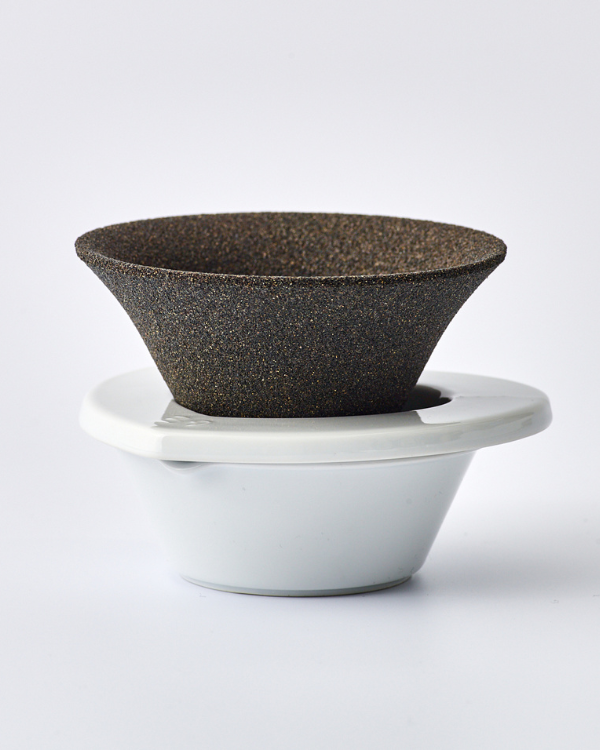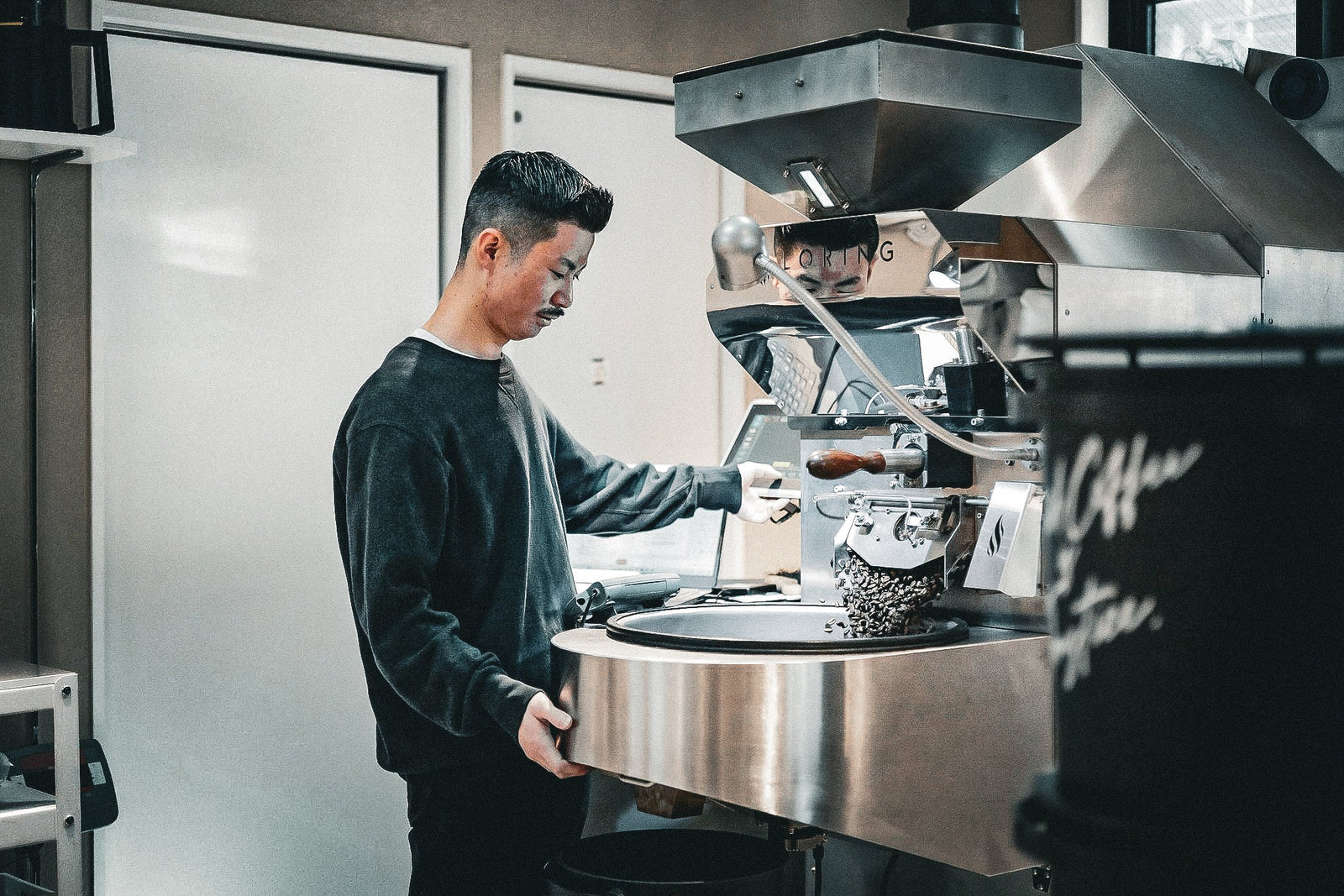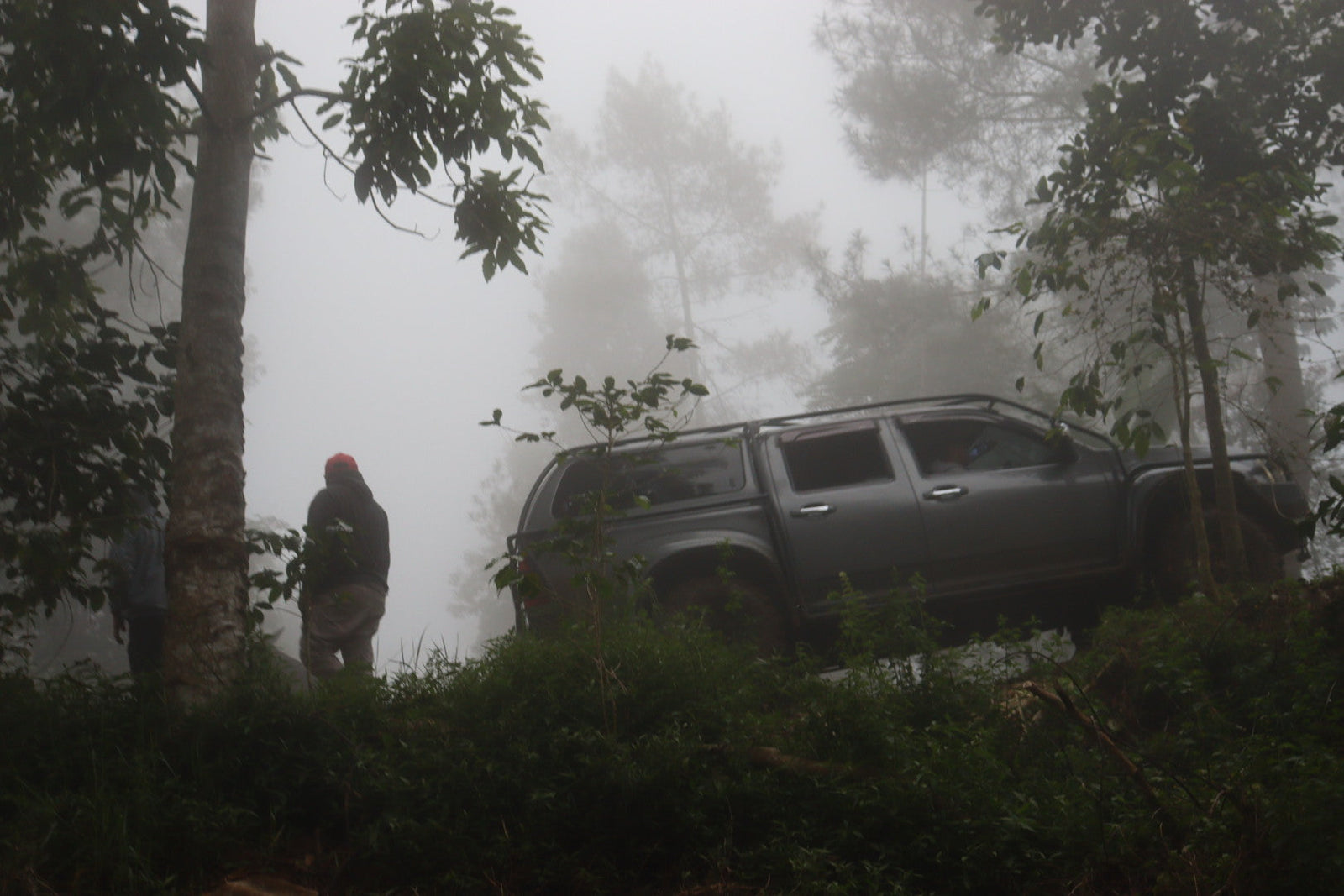Hey everyone! Have you had any nice cup of coffee today?
How did you enjoy our previous “Part 1” where we asked Kosuke about his first encounter with coffee related culture shock and how he chose to be a coffee roaster?
We got a lot of great responses from people and many of them seem to have enjoyed reading about Kosuke’s experience in Thailand!
Now we know a little more about Kosuke’s background story, we’d like to ask him more about his job as a coffee roaster in depth.
Oh by the way, you may want to start the kettle now- you will want to have a nice cup of Kurasu coffee once you finish reading this.
“Please tell us about your job as a coffee roaster. How is it like?”
Managing the roasting environment can be challenging. There is something I see the most important and therefore I pay the most attention to: the exhaust management. How the exhaust is managed will determine how the coffee turns out, and I’d say that’s the 99% of the contributing element of how everyone’s roast tastes different from each other. That’s how important exhaust management is.
How I do it is that I never close the damper, not keeping any smoke inside, constantly letting fresh air in. If you close the damper the coffee roasts much more quickly- whether the damper is open or closed drastically changes the temperature curve, and it changes the impression of the coffee a lot.
The roaster’s preference on this part of the process determines their coffee’s characteristics.
Our current roasting machine, Giesen, is made of cast iron which contains heat very well- which means we can leverage the heat retained in the metal instead of the direct fire, but if the roasting machine of a different made such as Fuji Royal with a lower heat storage, you would need to make a much finer adjustment during the process.
Our new roasting machine for our new roastery, Loring, is said to be having virtually no heat storage. But what that actually means is that we won’t be needing any technique of heat management in the machine’s body like we need with Giesen, therefore the result will be less affected by the skills and technique of the person who uses the machine. Loring comes with the technology that automatically adjusts and maintains the roasting environment for us.
Personally, I don’t make any roasting decision based on the smell nor sound of the beans. Colors too. Color can be perceived differently by different people, and how I see color can also be affected by my condition each day- it’s a very unreliable and vague information to base my judgement on. By emitting those unreliable information, I think I can achieve more stability in my roasting. That’s why I never pull the bean trier out while roasting. I don’t rely on color or smell, and if anything, doing that for several seconds can completely change the end result from what I was originally imagining to achieve.
I think the most significant part of our job as a professional coffee roaster is to be able to recreate the tailored roasting profile every time for each coffee. If they come out differently even with the same roasting profile, that’s where you need to start making an adjustment.


“What is your working day like?”
Amount wise, I usually stick with 600 kg per month, 10 batches a day. That makes it roughly 150 kg a week.
Here’s my schedule on a roasting day:
①Arrive at the roastery
②Pre-heat the machine (1h)
While doing so, I check the order list and decide how much I need to roast, then prepare the bags for packing as well.
③One batch takes 15 minutes (10 minutes of roasting + interval between the batches)
10 batches minimum a day (150minutes)
④Pack the coffee (1h)
⑤Delivery (1.5h)
⑥Cleaning the chaff (1h)
ーーWe heard that a 90L bin bag easily becomes full after one day of roasting. Sounds like a tough job!
“What kind of ‘fun’ moment are there while roasting?”
I find the very first roasting session of a new coffee exciting, but that’s about the only time I find roasting fun.
ーRight...really?
Well, I guess I also feel excited when I nailed a roast as exactly as I was imagining. Like, “YES!!”. lol
But most of the time, I find more joy in people’s reactions when they taste the coffee I roast, rather than in the roasting process itself. Every time I roast coffee I think of our baristas.
When I was working as a barista at Ogawa Coffee, I couldn’t be completely happy if the coffee I was brewing wasn’t what I found tasty. I couldn’t fully enjoy the brewing. That’s why I want to also make sure that my coffee makes our baristas happy first. I want them to be happy and be proud of what they are brewing and serving. I always try to roast a coffee that motivates baristas and is loved by them. So when they tell me they liked my coffee that is truly encouraging, and that’s what I want to create with my own hands.
ーー (Aw that’s so sweet!) Your experience and viewpoint you gained as a barista is definitely contributing to the passion of yours.
“So what’s the difficult thing about roasting coffee?”
Haha, I mean it’s more like what’s not difficult? I’ve never managed to be fully happy with myself. Achieving consistency and stability is the most difficult part. You can learn a theory from your textbook and you’ll get better as you roast more, but first you have to establish the environment where you can apply those theories. Environment building is the most difficult and what I struggle with the most. Especially at times like this when we are in between seasons, the temperature fluctuation directly affects the results. It’s adjustment after adjustment every time. Once the weather becomes more stable, roasting stabilizes too.

“Is there anything you are being careful about, as a professional roaster?”
ーーFor example, do you generally stay away from spicy food, alcohol, or cigarettes?
I quit smoking when I started my job as a barista. I bought my last packet, plucked out one cigarette, smoked that in front of a Seven-Eleven, and dumped the rest of the packet. It was like my personal ritual of closure. I still vividly remember that moment- what a waste. lol
I also don’t eat rice for dinner. My performance gets affected by what I ate the day before. I can’t fall asleep well if I eat too much at night, so I cut the rice and just eat mains or side dishes and go to sleep.
Following a certain routine is probably the biggest thing for me. Especially on a roasting day, I have a rule for what time I get up, leave the house, arrive at the roastery, and in which order I unlock the doors and turn the lights on, etc.
ーーEvery time? Even how you turn the lights on? Wow.
It’s just, it’s difficult to control the environment, but you can at least control your actions. That’s why I make myself do exactly the same thing every time. So I open the door, I have a set place where I put my bag down, which buttons to push in what order on the roasting machine, start heating them up with the same amount of heat as usual, then start roasting. That way, if the roasting process took 10 seconds longer than usual or something, I can notice that there may be something different about the environment that day. If I start roasting at a different time of the day and pre-heat as I please every time. I can’t narrow down what contributed to that change I’m seeing in the roasted coffee. So I make sure at least I do things in exactly the same way every time. I also decide the roasting order for each coffee at the beginning. Only then I can see if there’s something going on. It may sound a little extreme, but I think it’s important.
When I first started roasting I was relying on the numbers I see on my monitor. But then it turned out that numbers can be unreliable, and my routine in time and timing was actually more accurate than what the machine measures.
It sounds strange but it happens all the time. For example, if a person without a thermometer at home boils some water, and waits for a minute, and when that becomes a meticulous routine, it’s possible to get exactly the same temperature without relying on the thermometer.
For coffee roasting, it’s important to “trust the number and doubt the number”. In addition to that, you need to follow your instinct too, and the physical memory you establish through your experience. If you act differently every time, and if you see trouble, you can’t tell if that’s because of the environment or if it’s something you did or didn’t do.
If you are a barista aspiring to be a roaster, you’ll need that flexibility and self control. I almost think that it may be easier for people without any preconception of coffee to jump into coffee roasting.

“We are looking for your roasting assistant, getting ready to expand our roastery- what kind of quality would you like to see in your future assistant?”
“Hard working and honest”. That goes a long way.
I also want to work with someone who loves coffee more than I do.
ーーHmm, is there? Simple but a tricky requirement we’d say.
Actually, what I look for the most is someone who has a different set of strengths to me. While we would be pursuing the same goal, we will need different perspectives to maintain the balance. Whether it’d be a man or woman isn’t really important for me, but I read about the possibility of anatomical difference between sexes that may affect the sense of smell and taste. Apparently, men generally taste and smell things with consistency, and women have a more dynamic rhythm in sensation perception but more in a nuanced way.
I don’t know how much of this is true, but I find these things fascinating.
I want to add a new perspective I don’t have to our team. The only thing I’m a bit worried about is that heavy lifting can be demanding on a female.
ーーIf you are a coffee loving person who can lift heavy stuff, please apply!
ーーーーーーーー
How was the part 2 of Interview with Kosuke: Our Roaster?
Didn’t it make you want a cup of coffee?
It’s really interesting how we see the coffee we drink everyday suddenly look different once you know more about its back story.
It was a delightful interview for us Kurasu staff too to know more about Kosuke, that he thinks of our baristas when he roasts, how he has his own rigorous roasting day routine- it explained a lot about him as the kind, hardworking and honest guy. An artisan of coffee roasting we’d call him.
The next part is the final part of the interview, and we will ask him all about the big event we had and his future plans (plus the interviewer’s personal questions.)
Stay tuned!

